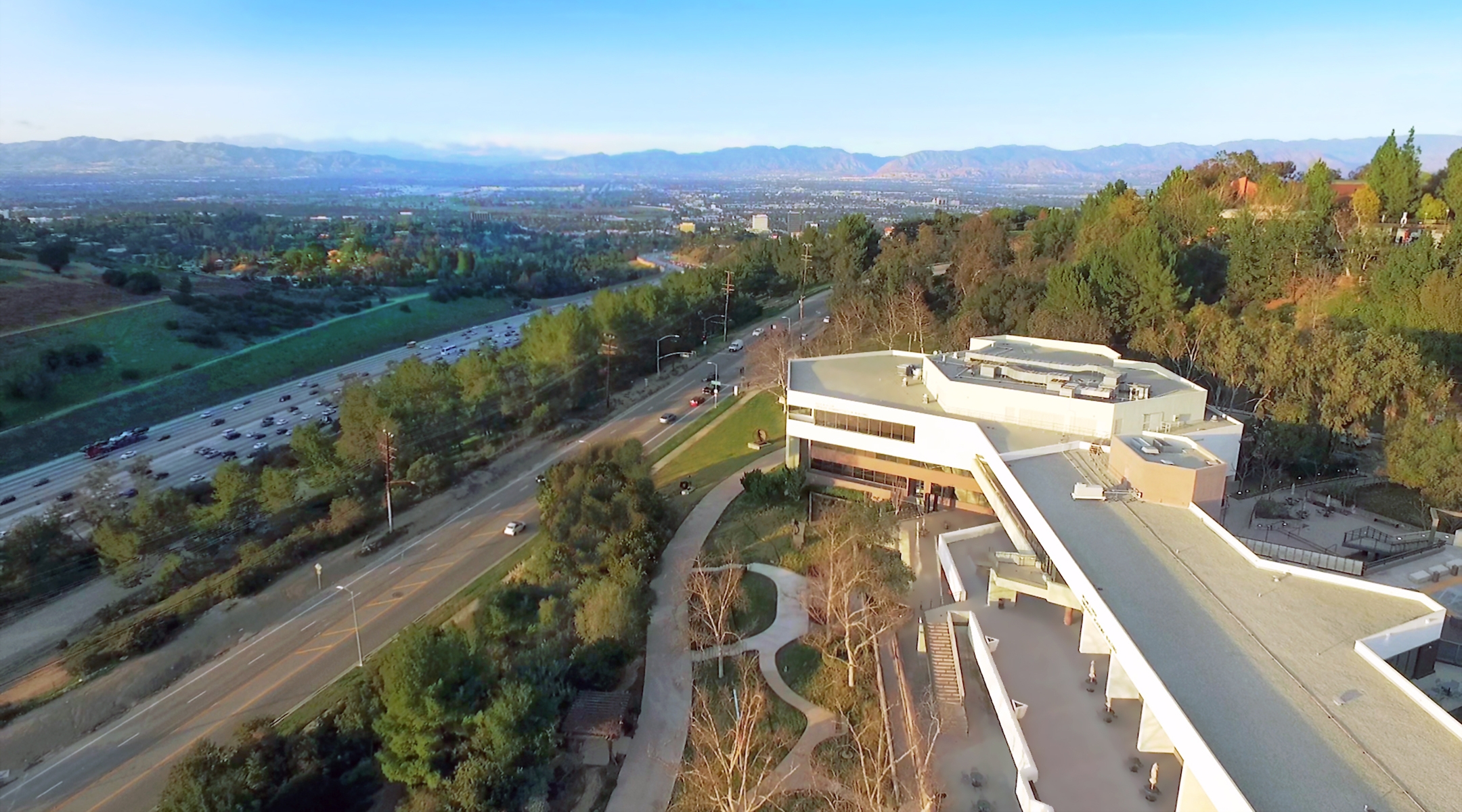(JTA) – The financial future of American Jewish University is in flux again after a plan to raise a reported $65 million by selling its 22-acre campus in Los Angeles to a Swiss education company fell through.
Nine months after the university announced a deal had been reached to sell the property, the prospective buyer, EF Education First, said it was pulling out and abandoning its plans to establish a language school for international students at the site because of the opposition of residents in the highly affluent neighboring community.
“This is obviously a disappointment, but we will regroup to ensure that we use our land and facilities in the best way possible,” AJU president Jeffrey Herbst said in an email to the campus community Wednesday.
Proceeds from the deal were expected to alleviate the financial pressures faced by AJU, which shut down its undergraduate program in 2018 and whose Conservative rabbinical school, like many other seminaries, has struggled to attract applicants. Under Herbst, the university dedicated itself to expanding its online educational offerings.
Only last month, AJU’s Ziegler School of Rabbinic Studies announced it would relocate to a leased space in a commercial office building in Pico-Robertson, a Los Angeles neighborhood with a large concentration of Jewish institutions and businesses. A spokesperson said AJU was not prepared to comment on what might happen to that plan given the cancellation of the sale.
In response to questions regarding the announcement, the university released a statement saying it would explore its options for the future of the campus. It is unclear whether the university will try to revive a previous offer from Milken Community School, a Jewish day school, to purchase the site for a reported $60 million, and whether Milken is still interested.
Milken’s head of school Sarah Shulkind declined to comment.
In a letter to the Los Angeles Planning Commission, which was overseeing the proposed conversion of the campus, EF blamed xenophobic complaints by neighbors for its decision to cancel the deal.
“Based on the comments we have heard and the letters submitted in opposition, it is crystal clear to us that there are individuals in the neighborhood who do not want international students in their community,” reads the letter signed by EF Vice President Shawna Marino. “This is the first time we have experienced this level of fear and bias.”
The company declined to respond to questions.
A leader of the local homeowners opposing the sale rejected the company’s characterization of the opposition and said neighbors were worried about the effects of the company’s plans to increase the level of activity at the site, including the housing of up to 700 students, especially in the case of an emergency evacuation in the wildfire-prone area. In one letter to the association, a resident of the adjoining development called the Education First plan “incredibly disturbing and dangerous” while saying that he wanted the land to be used by a school.
“Our concerns were always about safety, security and parking that logically flow from their high enrollment numbers,” Elizabeth Barcohana, vice president of a homeowners association representing nearly 100 nearby homes, told the Forward.
For some in Los Angeles’ Jewish community, the collapse of the sale revived previously abandoned hopes that the campus, with its major library and community ritual mikvah bath, would be handed over to another Jewish institution.
Immediately after the Jewish Journal broke the story of the deal’s cancellation on Wednesday, the Los Angeles newspaper’s publisher, David Suissa, published a short post saying that when Milken’s bid for the campus wasn’t accepted, “there was some bad blood” and that a new deal could bring reconciliation.
“We don’t always get second chances in life,” Suissa wrote. “This is one of them. Hanukkah seems to have come early for our community.”
A proposed law could open the door to other uses for the land. Spearheaded by a legislator who says he is driven by his Jewish identity, the California Senate recently voted to allow colleges and religious institutions to build affordable housing on their properties — even if they aren’t zoned for residential use. The legislation still needs approval from the California’s Assembly and governor, who has made the state’s housing crisis a top priority.
JTA has documented Jewish history in real-time for over a century. Keep our journalism strong by joining us in supporting independent, award-winning reporting.






